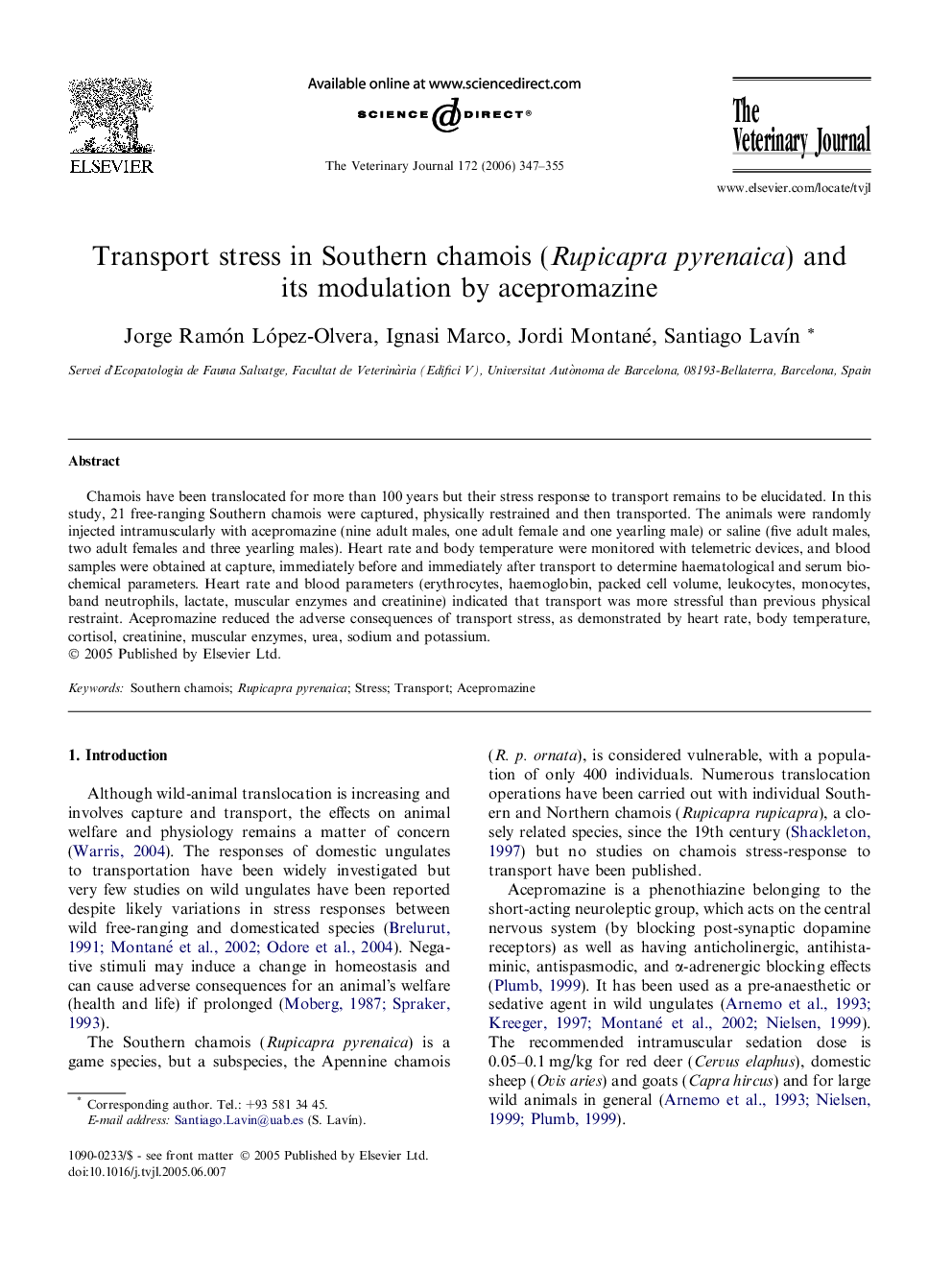| Article ID | Journal | Published Year | Pages | File Type |
|---|---|---|---|---|
| 2465913 | The Veterinary Journal | 2006 | 9 Pages |
Chamois have been translocated for more than 100 years but their stress response to transport remains to be elucidated. In this study, 21 free-ranging Southern chamois were captured, physically restrained and then transported. The animals were randomly injected intramuscularly with acepromazine (nine adult males, one adult female and one yearling male) or saline (five adult males, two adult females and three yearling males). Heart rate and body temperature were monitored with telemetric devices, and blood samples were obtained at capture, immediately before and immediately after transport to determine haematological and serum biochemical parameters. Heart rate and blood parameters (erythrocytes, haemoglobin, packed cell volume, leukocytes, monocytes, band neutrophils, lactate, muscular enzymes and creatinine) indicated that transport was more stressful than previous physical restraint. Acepromazine reduced the adverse consequences of transport stress, as demonstrated by heart rate, body temperature, cortisol, creatinine, muscular enzymes, urea, sodium and potassium.
